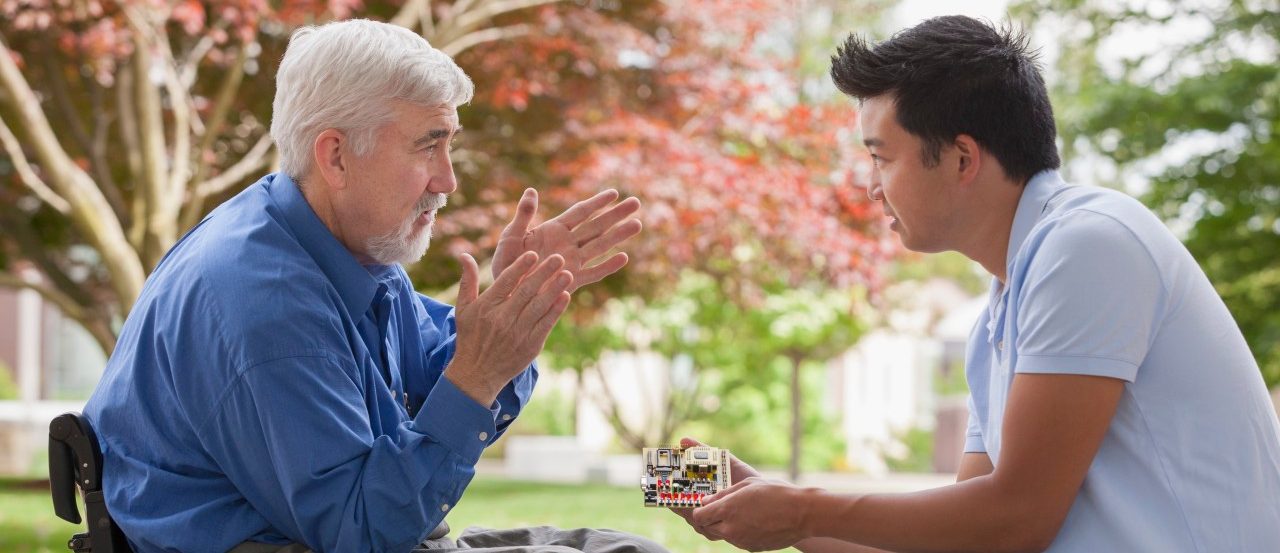The Stigma of Diabetes Remains a Challenge

You already have so much to deal with, you don’t need to be judged or misunderstood, too.
It’s hard enough dealing with what can be a debilitating disease without having to cope with other people’s misconceptions about it as well.
But the reality is that the stigma connected to diabetes is alive and well, as you probably know if you have the disease. There are ways, however to cope, both to help yourself psychologically and to suppress the stigma within your social sphere.
YOU MIGHT ALSO LIKE: Diabetes Related Foot Deformity Is on the Rise
A survey of more than 5,000 people with diabetes found that the stigma does indeed affect a majority of patients. For the purpose of the survey’s Q and A format, social stigma was described as “a set of negative beliefs or a mark of disapproval that society has for a certain group of disease.”
Among those who responded that diabetes does come with a stigma, most perceived “a sense of failure of personal responsibility,” or that having diabetes was a character flaw. Those perceptions, in turn, lead you to feel “guilt, shame, embarrassment, isolation or blame,” the survey authors reported.
The real shame is in how you may be perceived and treated because you have a disease that you didn’t ask for, don’t want, and are trying to control.
Because of this backlash, there is an increasing awareness of the need for public education about diabetes and the challenges that come with keeping it under control. Stigma has diminished over time, the survey reported, when compared to decades ago when you might lose your job over it and, so, you desperately tried to hide it. But, there is more work to be done.
[For more information on diabetes stigma, you can view the full poster presentation on the subject at the American Diabetes Association (ADA) annual meeting.]
YOU MIGHT ALSO LIKE: How Diet May Affect Your Blood Sugar
Meanwhile, here are some tips you can keep in mind to help yourself. The first is to remember that you have nothing to hide or feel guilty about. Yes, that’s easy to say and harder to believe, but it’s a first step in clearing your mind of the mental burden you carry around day after day.
One of the toughest aspects of diabetes you deal with involves food and what you eat. When people know you have diabetes, even your closest friends, you’re going to be watched, as though you’re not smart enough or have enough self-control to handle it yourself.
Some dietitians or nutritionists will recommend carbohydrate counting, since carbs can raise your blood sugar. They also are an essential part of a healthy diet and are naturally the body’s fuel. A diabetes nutrition expert at your local hospital or from the ADA can help design a plan that works for you, the individual, if you want to delve more deeply into what and how you eat.
If a well-intentioned but misguided person gives you grief over that brownie you’re reaching for, use that occasion to educate her about something she actually knows little about. Or, have some good responses ready beforehand. One, suggested on DiabetesMonitor.com, is “diabetes care has changed. But, thanks for thinking of me.”
If you happen to be diabetic and overweight or obese, things get even harder. “Fat shaming,” or being reminded consistently – often in public — that you are overweight and it’s your fault, often comes with a diagnosis of diabetes. It comes from the misguided, and downright mean, notion that if you are reminded how obese you are, you will change yourself.
The ADA says that tactic not only doesn’t work but also makes people who experience it less likely to lose weight and avoid physical activity, both of which can make diabetes worse.
The ADA encourages those who have concern for you to ask that you join them at the gym and praise you for the good food choices you make on your own. This information helps you remind those cruel types that there are other, more positive ways if they want to help. Otherwise, you don’t need their advice or “help.”
Other suggestions include mindfully managing your stress and joining a support group, talking about your diabetes so others understand the condition, and letting go of guilt, fear, and shame because they can lead to depression and prevent you from taking good care of yourself. If you need help doing that, find a therapist who can provide a framework. (And don’t get caught up in the stigma attached to seeing a therapist.) Counseling is a booming business for a reason.
If criticism and insensitivity start to make you angry, channel that energy into action rather than letting it eat you up from the inside out. Again, a therapist, or counselor if you prefer, can help you learn to do that, sometimes by teaching you mindfulness meditation or another way to keep yourself in the present and centered.
Always think about the good things in your life and what you enjoy, be it gardening or bird watching – and do them. Being mentally healthy helps you better deal with the challenges of diabetes and helps you let go of the extra baggage stigma brings to it.
YOU MIGHT ALSO LIKE: Good Carbs, Bad Carbs: How to Make the Right Choices
Updated:
February 28, 2020
Reviewed By:
Janet O’Dell, RN